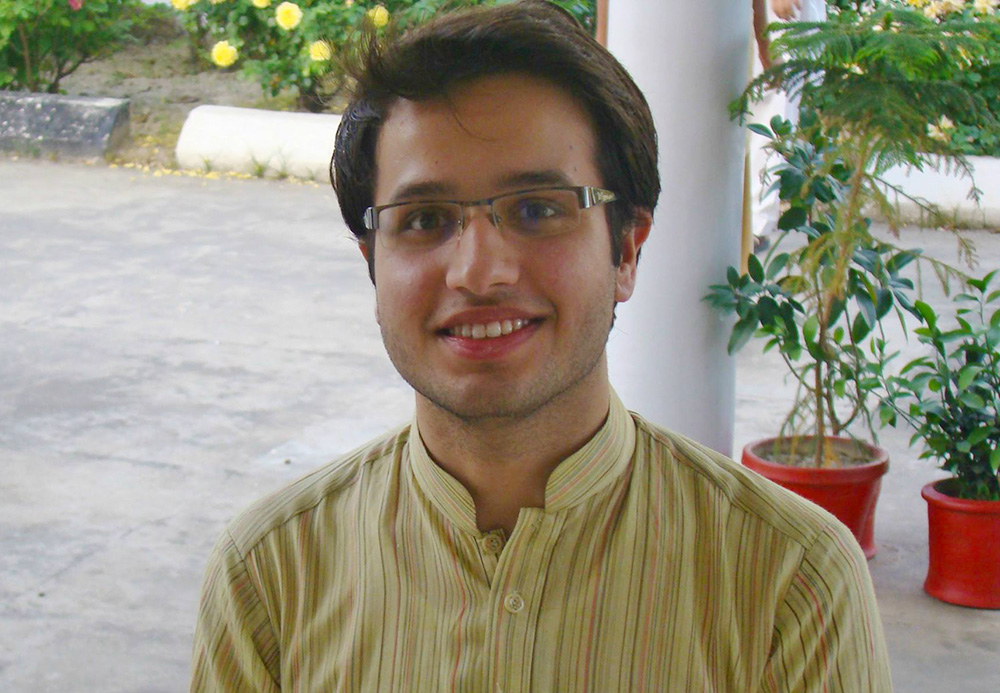Nouman Khan works to study and improve the operation of multi-agent systems and networks

Nouman Khan, an ECE PhD student, has been awarded a Rackham International Student Fellowship for his research in the area of networks, communication, and information systems. His focus is on provably efficient reinforcement learning algorithms for multi-agent systems.
“While recent years have witnessed significant success of single-agent reinforcement learning, such as in online gaming, virtual recommendation systems, and quantitative finance, its applicability to real-world systems is less understood,” Khan said. “Most real-world systems have multiple agents which need to act in a coordinated manner to achieve their goal. I am interested in developing a theoretical framework for such systems and then within it, develop provably efficient and robust data-driven algorithms.”
Another aspect of Khan’s research is inference and control in networks and networked systems. Recently, Khan proposed the “Rarest-First with Probabilistic Mode-Suppression” protocol for decentralized file-sharing networks and showed its stability and scalability using Lyapunov-drift analysis. Khan has also studied the spread of information and misinformation in networks.
“Much like physical engineering systems, AI has disrupted how digital networks operate and how we use them,” Khan said. “While most of this disruption has been beneficial, there are also detrimental effects, such as the rise of deep fakes and social memes, making the risks of misinformation imminent and alarming. By modeling and investigating the interplay of information and misinformation, we can better understand their individual dynamics.”
By modeling and investigating the interplay of information and misinformation, we can better understand their individual dynamics.
Nouman Khan, ECE PhD student
In addition to his research, Khan has taken on several mentorship and teaching roles for ECE. He is a peer mentor for the ECE BuddEEs Program, which is administered by the ECE Graduate Student Council. He has also served as GSI for four classes: EECS-203 (Discrete Mathematics), EECS-301 (Probabilistic Methods in Engineering), EECS-562 (Non-linear Systems and Control), and SIADS-644 (Reinforcement Learning Algorithms).
“My parents had very limited options growing up, so they made sure my siblings and I had access to quality education,” Khan said. “That profoundly shaped my understanding of how education can break the vicious cycle of scarce possibilities in underprivileged groups. That’s one of the reasons I have a great passion for teaching and mentoring.”
Khan is advised by Prof. Vijay Subramanian. He earned his BS in Electronic Engineering from the GIK Institute of Engineering Sciences and Technology (GIKI), Pakistan, and his MS in ECE from U-M. In addition to his PhD, he is also earning an MS in Mathematics, and a Graduate Teacher Certificate offered by the Center for Research on Learning and Teaching (CRLT).
 MENU
MENU 
